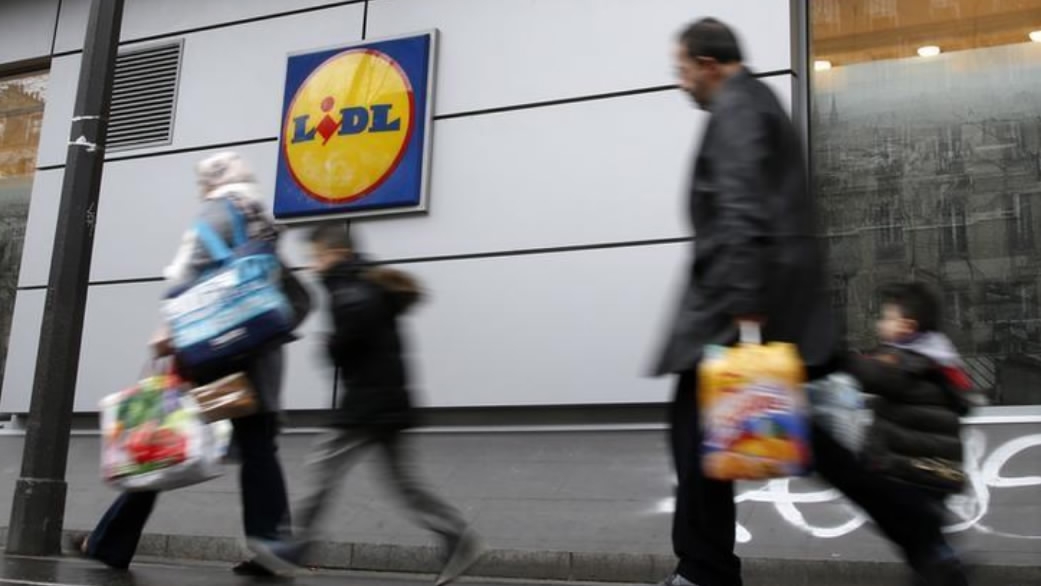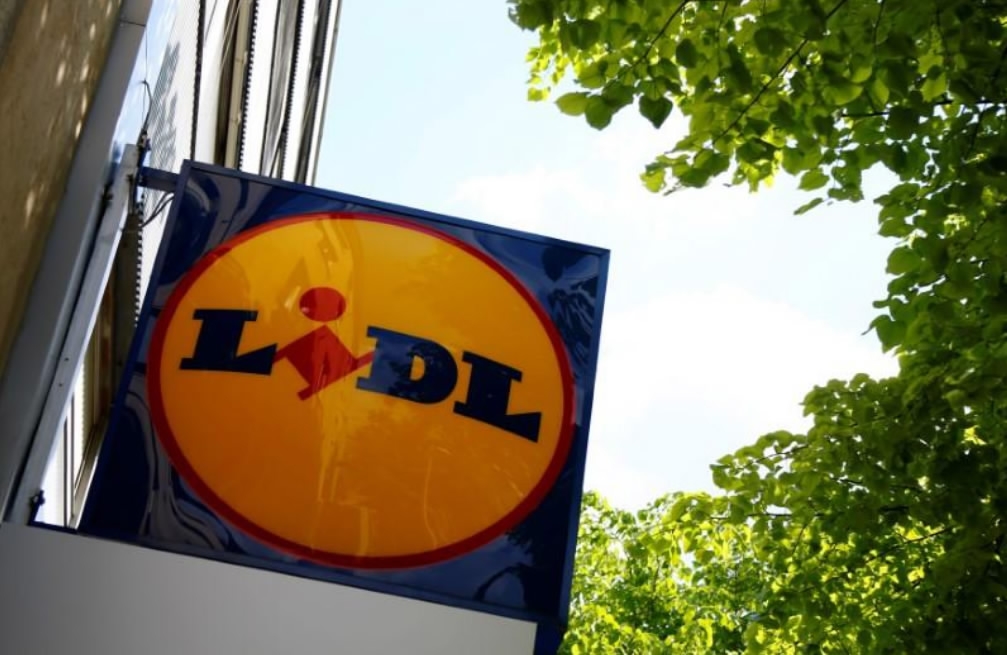
Business
16:11, 18-Jan-2018
No-frills German discounter feels the heat from US rivals
By Nadeem Gill

German supermarket chain Lidl has triggered a grocery price war in parts of the US where it operates, but appears to be slowing expansion less than a year after it opened its first store in America, according to a German media report.
Though consumers are profiting from Lidl’s strategy, the discount food retailer is feeling the heat from its US rivals, who quickly matched prices.
"The good news for consumers has not translated into success for the company," said the report in the Handelsblatt Global.
Lidl opened 49 outlets in the US after its 2017 launch, unveiling a plan to open 100 stores in the first year of its US operations.

The Lidl company logo on a store in the Austrian capital Vienna, May 7, 2016. /Reuters Photo
The Lidl company logo on a store in the Austrian capital Vienna, May 7, 2016. /Reuters Photo
The report said the firm has now not given any predictions about future plans, referring to a rough patch for the retailer.
"A rough patch"
The firm has either suspended or abandoned plans to open stores in Pennsylvania, New Jersey, Virginia and Ohio, Reuters said quoting the Handelsblatt business daily report released ahead of publication in its Thursday edition.
Lidl declined to confirm or deny the report, saying it was “constantly examining and working on" its property portfolio, said Reuters.
The company "needs adjustment at one point or another", Handelsblatt Global quoted a Lidl spokesman as saying, who described the US launch as, “all in all successful”.
The report hinted at a change in the firm's strategy that, at first, built all-glass 3,300 square meters stores, around twice as large as its outlets in Germany.
It has now advertised for smaller US stores, less than half the size ( 1,400 square meters) of its earlier outlets, the report added.
Compared to the previous outskirt locations, the firm now looks to establish its presence in city centers in a bid to cash in on more densely populated areas, it added.
Lidl is also trying to get co-tenants, a strategy that the report said is apparently aimed at attracting more shoppers to their retail areas.
The price war
Essential staples were up to 55 percent cheaper at grocery retailers located near new outlets operated by Lidl than in areas where the German discounter is not present, the report said, quoting a study by the University of North Carolina (UNC) Kenan-Flagler Business School."
Associate professor of marketing at UNC, Katrin Gielens, conducted the comparative study examining the prices in six areas where Lidl launched stores last June as well as in South Carolina, North Carolina and Virginia where the retailer does not exist.
“The level of competitive pressure Lidl is exerting on leading retailers to drop their prices in these markets is unprecedented,” said Gielens.

Aldi opened its first store in the US in 1976. /Reuters Photo
Aldi opened its first store in the US in 1976. /Reuters Photo
“In fact, the competitive price cutting effect of Lidl’s entry in a market is more than three times stronger than the effect of Walmart’s entry.”
The Chicago Tribune paper declared Lidl as one of the reasons of "the price war in the American grocery aisle" which it said is "getting more intense."
Lidl is putting more pressure on grocery giants such as Kroger and Walmart Stores, it added.
The other no-frills discounter Aldi, which has 1,600 stores in the US, is another German player shaking up the American grocery price landscape.
"If it's death by a thousand cuts, Aldi and Lidl are holding the blade," the Chicago Tribune quoted Mike Paglia, a grocery analyst at the research firm Kantar Retail, as saying.
"It looks a lot like a price war, and you're starting to see those ripple effects."
Lidl is popular in Europe because of its competitive prices and operates in 27 countries with more than 10,000 stores.
Dieter Schwarz, named Germany’s richest man by several international rich lists, is the son of Lidl founder Josef Schwarz and currently owns the company.

SITEMAP
Copyright © 2018 CGTN. Beijing ICP prepared NO.16065310-3
Copyright © 2018 CGTN. Beijing ICP prepared NO.16065310-3